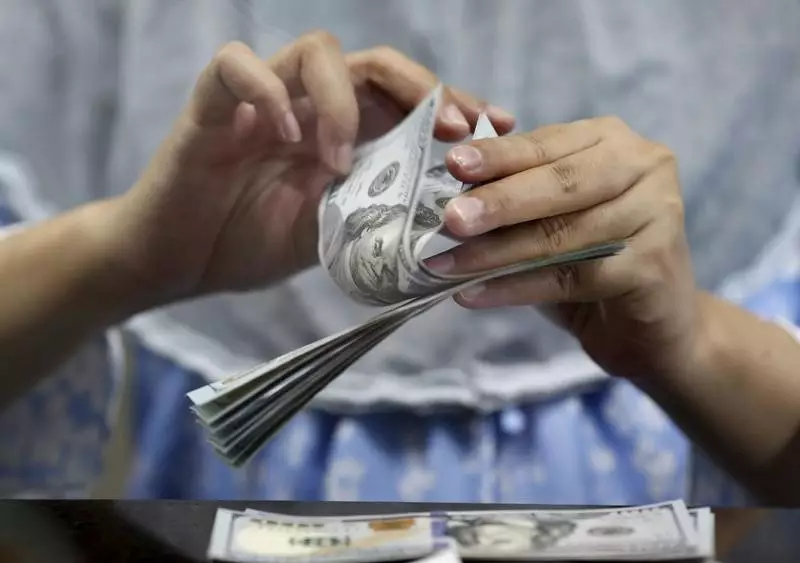In recent weeks, the U.S. dollar has experienced a notable uptick, attributed largely to the revived interest in what has been dubbed the “Trump trade.” This shift in investor sentiment has occurred as Republican presidential candidate Donald Trump appears to gain ground in the race for the White House, offering a glimmer of hope for his supporters and market watchers alike. Yet, while the dollar may show strength in the short term, experts like UBS caution against viewing this trend as a sustainable or wholly positive development for the currency.
The notion of a “Trump trade” is grounded in the perception that Trump’s policies could have favorable implications for economic growth, tax reforms, and deregulation. As such, traders often react to his polling performance, driving up confidence in the greenback. Recent analysis indicates that Trump has garnered a slim lead over Vice President Kamala Harris in some surveys as the election date approaches. This change has led the markets to speculate that a Trump presidency could herald a period of favorable market conditions, leading to increased dollar demand.
However, UBS’s perspective introduces a critical lens into the equation. While a Trump victory could temporarily lift the dollar, particularly among traders leveraging short-term gains, the bank warns that such a surge might be misleading. They argue that the dollar could eventually taper down, as Trump’s proposed policies may not yield the uncompromising advantages anticipated by market participants. In fact, UBS anticipates that the euro-dollar exchange rate could stabilize around 1.16 by 2025, indicating a restrained outlook for the dollar’s long-term strength.
Investors captivated by the immediate gains from the dollar’s rise need to exercise caution. The allure of quick profit can often cloud judgment, leading to hasty decisions grounded in transient market conditions rather than comprehensive economic analysis. The risk of relying too heavily on a single political figure’s influence over currency performance is significant. Markets are inherently unpredictable, influenced by myriad factors beyond the political sphere—including economic indicators, global events, and central bank actions.
Moreover, dismissing the broader context within which these “Trump trades” are occurring could lead traders to miscalculate risks. Political factors may contribute to market volatility, yet they do not exist in a vacuum. Therefore, UBS’s recommendation to sell elevated dollar positions underscores the necessity of a balanced, long-term investment strategy.
As the political landscape in the United States continues to evolve, the interplay between policy, market sentiment, and economic fundamentals presents a complex challenge for investors. While the dollar’s current rally may reflect short-lived enthusiasm surrounding the prospect of a Trump presidency, it is prudent to maintain skepticism regarding the sustainability of such movements. A diversified investment approach, paired with careful analysis of ongoing political developments, is essential for navigating the unpredictable currency markets ahead. By adopting a measured approach, investors can potentially safeguard their portfolios against the pitfalls that often accompany politically driven market fluctuations.


Leave a Reply